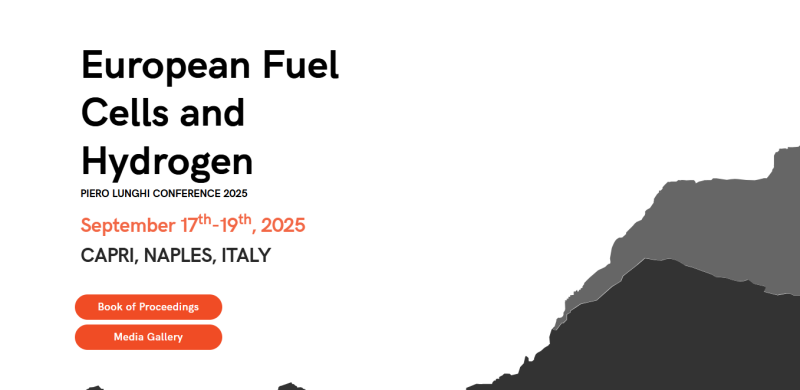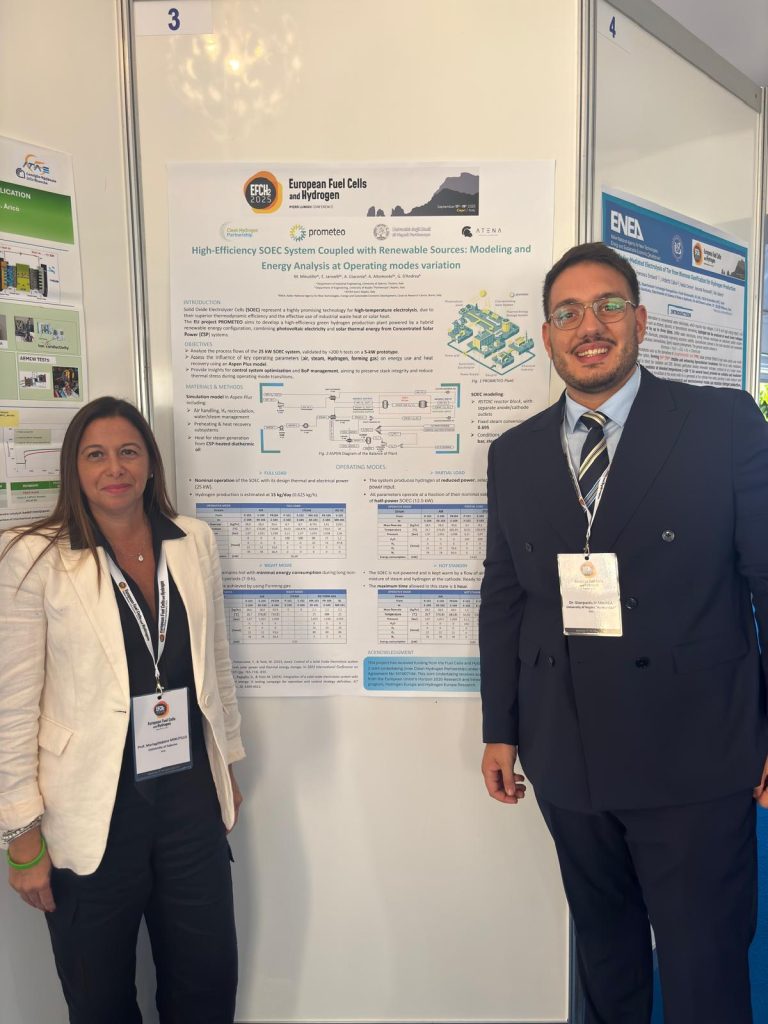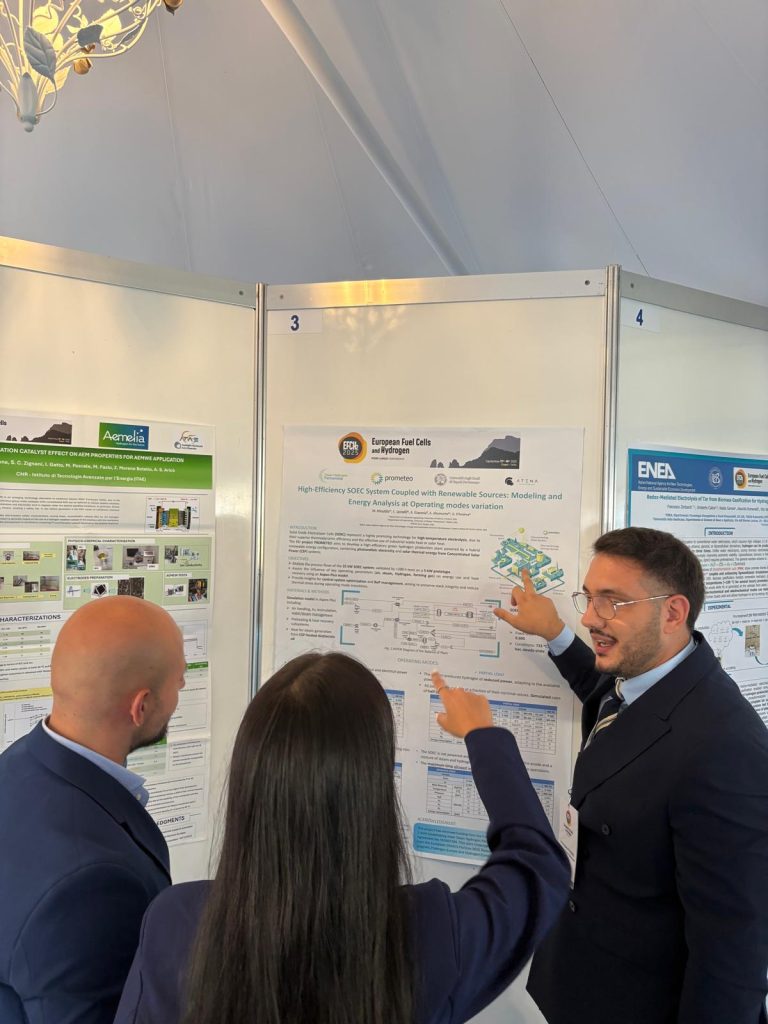PROMETEO in Capri for the EFCH2

The 11th edition of the European Fuel Cells and Hydrogen Piero Lunghi Conference 2025 – EFCH2 2025 took place in Capri (Italy). It is recognized as one of the most important international conferences in the field of hydrogen technologies and fuel cells, and it provides a unique opportunity to showcase the latest technical advancements, establish new contacts, and promote the exchange of technical, industrial, and commercial information.
The conference covers a broad spectrum of hydrogen, fuel cell, and electrolysis-related topics, from production technologies to cutting-edge applications across sectors. Key areas of focus include, but are not limited to, materials innovation, advanced component manufacturing, numerical modelling, system integration, safety protocols, policy frameworks, and comprehensive market and environmental analyses.
PROMETEO project was present with two posters!
The first poster was authored by ENEA – Yuri De Pra, Carla Menale, Paolo Deiana, Massimiliano Della Pietra, Alberto Giaconia – and was entitled “Optimisation of hydrogen downstream treatment system for solid oxide electrolysis”.
This study presents the modelling of the downstream section of the PROMETEO electrolyser, highlighting the potential of dynamic simulation as a decision-making tool for the selection of hardware components and control parameters through dedicated parametric analyses. The results demonstrate that, for this specific application, a careful and robust design of the process equipment is essential, particularly when accounting for the effects of components’ ageing and performance degradation. For instance, a reduction in hydrogen production below the minimum flowrate required by the downstream compressor could significantly impair the operability of the entire system if the intermediate buffer volume and control strategies are not adequately dimensioned. These findings emphasize the importance of ageing effects and dynamic behaviour into the design phase, shading light on the crucial role of control loops and their ad hoc design. Future developments will focus on a more detailed modelling of the compression and purification stages, with the aim of characterizing their individual components, interactions, and transient responses in order to enhance system reliability and operational flexibility.
Gianpaolo D’Andrea – Research Fellow at the University of Naples ‘Parthenope’ – presented the work “High-Efficiency SOEC System Coupled with Renewable Sources: Modeling and Energy Analysis at Operating modes variation”.
The poster reported (i) the results of the process flows analysis of the 25 kW SOEC system, validated by >200 h tests on a 5-kW prototype and (ii) the assessment of the influence of key operating parameters (air, steam, H₂, forming gas) on energy use and heat recovery using an Aspen Plus model. Gianpaolo provided insights for control system optimization and BoP management, aiming to preserve stack integrity and reduce thermal stress during operating mode transitions.
Here the link to the book of proceedings: https://drive.google.com/file/d/1LHRY4W1ywT5RqOrmsVmcBTk_rXZaIOsa/view
Read more about the conference here: https://www.europeanfuelcells.com/efc-25-capri-conference

